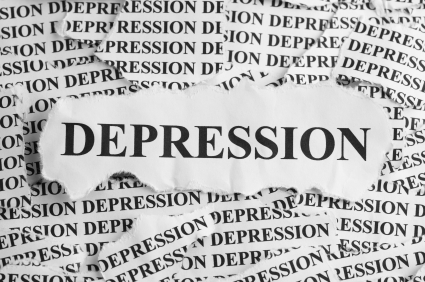According to WHO, more than 350 million people suffer from depression worldwide (WHO; 2012), and over 80% of people with symptoms of depression are not receiving medical attention. Depression is a very popular word, and its usage has somewhat been diluted from a clinical disorder to any episode of mood swing or sadness. Because the word depression is thrown around a lot in informal conversations, there is the tendency to not see it for what it is. Here are 5 things you may not have known about depression.
1. Depression is a Clinical Disease. It is not just that episode where you don’t feel like going out after a bad break up, or that feeling you get after failing an examination. Depression is a mental health disorder that affects the body and mind of sufferers. It is characterized by episodes of high and low mental state of health that can be mild, moderate or severe. The severity of clinical depression in a person can seriously affect their physical lives. This means that not only is their mind consumed by a feeling of hopelessness, people suffering from depression can also find it difficult to function physically at work, in school, or in the society.
2. Depression Can Lead To Other Health Conditions. Even though clinical depression is not the only cause of suicide, it is one of the leading factors. People who are severely depressed may find themselves entertaining the thoughts of “ending it all”, as a way to relieve themselves of the burden of depression. And even though severely depressed people may not have the physical energy to commit suicide, they may do it the moment they feel better. This is why it is not uncommon to hear that a popular figure committed suicide even when they looked happy. Heart disease, sleep disorders, bulimia and anorexia, obesity, stroke and poor quality of life are some of the health conditions that can arise from clinical depression, due to the feeling of helplessness that sufferers feel.
3. Depression Can Be Easily Treated. Depending on the severity of clinical depression, treatment can be easily completed in a few weeks. The most common methods for treating clinical depression include psychotherapy and anti-depressant drugs, but patients have been known to use exercise and other lifestyle changes to treat depression. The biggest obstacle to the treatment of depression is the stigma associated with mental disorders. People who suffer from depression almost always choose not to present themselves for clinical diagnosis. Instead, they keep hoping to get over it.
4. Depression Is Genetic. According to scientific research, around 50% of the cause of clinical depression is genetic. This means that having a family history of clinical depression can play a significant role in the occurrence of it in another person. This does not necessarily mean that you will become depressed because one of your parents had depression. It only means that genetics could play a part in clinical depression.
5. Depression Can Be Caused By Lifestyle Choices. As much as depression can be genetic, it can also be caused by lifestyle choices that we (un)consciously make. Having a sedentary lifestyle, laziness, divorce, or loss of loved ones can contribute to the occurrence of depression in people. A lazy person does not necessarily become depressed, but there is a tendency to become consistently unhappy when you are unable to achieve what others are achieving, or when life is not going the way you planned.
Depression is not a death sentence, neither is it a condition to be stigmatized. For people suffering from clinical depression, early diagnosis and constant treatment is important in managing the disorder. For people who know patients suffering from the disease, the best help you can give them is to support them in getting the help that they need.
About the author: Amina Salau is a writer and editor running The Illuminated Pen. You can find her online at www.theilluminatedpen.com and on Twitter (@_Aminah)


